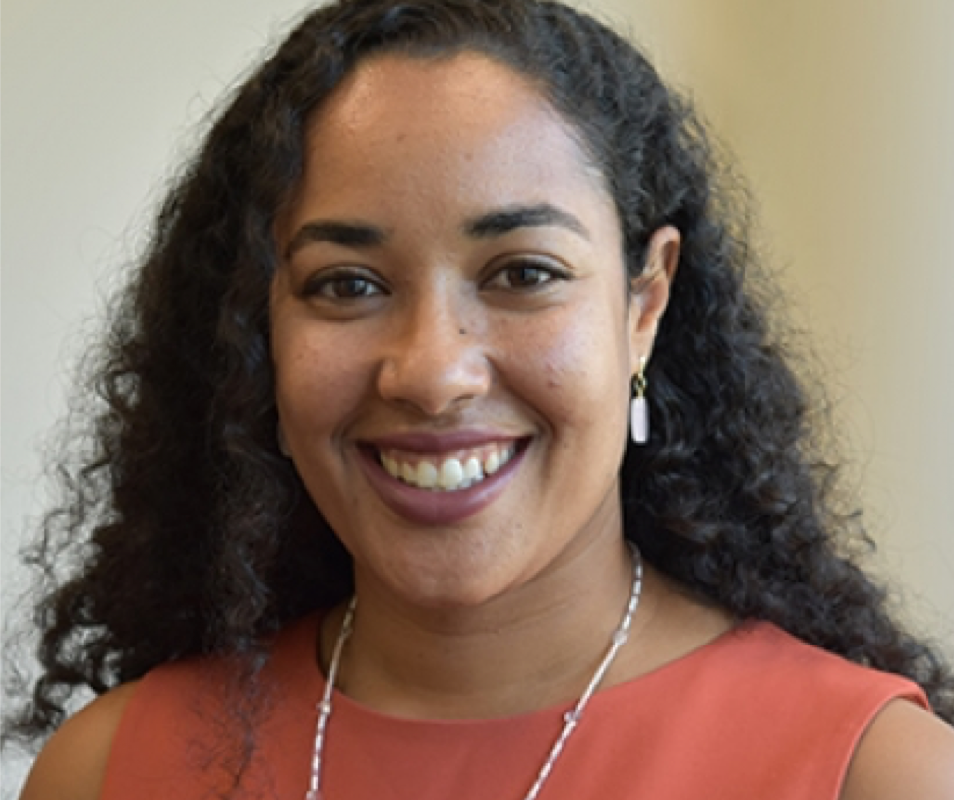Celina de Sá, an assistant professor of anthropology and an affiliated faculty member in African and African Diaspora Studies and the Teresa Lozano Long Institute of Latin American Studies at UT Austin, is one of the College of Liberal Arts’ newer faculty members. Her research focuses on performance and race through grassroots social networks in West Africa, and her first book, Diaspora Without Displacement: Race, Performance, and Belonging in West Africa, is currently under contract with Duke University. At the beginning of her second year at UT, de Sá spoke with us about her research interests, her upcoming book, and how she’s moving anthropology forward.
When did you join UT? What was your educational and professional background before coming to Austin?
I joined UT in Fall 2021. I earned my PhD with distinction at the University of Pennsylvania and received a joint degree in Africana Studies and Anthropology. Before coming to UT, I had fellowships at Dartmouth College and the University of Pittsburgh.
How did you originally come to study Anthropology?
I was a sociology major in college and only took a few anthropology courses. I became a Mellon Mays fellow right before studying abroad in Senegal. In time I realized that anthropology was the best discipline to pursue questions of social identity, cultural practices, and power while doing international research.
How would you describe your research focus? What drew you to this topic?
I use my research in pursuit of uncommon connections and stories rooted in the Atlantic world. My first book looks at West African founders and members of the region’s first capoeira schools—a form of combat involving music that was developed by enslaved Africans in Brazil. My father is an Afro-Brazilian capoeira master, and as a practitioner myself (although reluctantly so in my childhood), I was always curious about how people identify in cultural spaces, and use performance to understand history, particularly the histories that comprise what we call the transatlantic slave trade. I was drawn to the way that cultural performance also tells us about the legacy of these histories, as well as questions of ownership, authorship, and expertise.
Tell us about your book in progress, Diaspora Without Displacement: Race, Performance, and Belonging in West Africa. What’s your argument? What do you hope people take away from reading it?
My book manuscript is currently under contract with Duke University Press, so I’m excited for my intervention to be in dialogue with existing literature on race and coloniality in African contexts. In the book, I argue that performance practices and communities developed in the African diaspora can have the ironic effect of marginalizing African continental participation. We are used to Africa being the “source” and origin of diasporic arts, but this framework comes at the cost of young West African culture workers having artistic license to innovate in dialogue with the diaspora, due to colonial logics that are still present today. My main hope is that readers come away from the book with two main impressions: 1) that spaces designed to celebrate Blackness and Africanness can also be sites of exclusion, often in unpredictable and ironic ways, and 2) that African young people have as much a right to exploration and creativity around heritage and self-fashioning as anyone else.
Regarding the courses you teach, what contemporary patterns of migration are you most focused on? How do these patterns connect to your focus on expressive arts? And, what’s your favorite subject to teach students?
Looking towards future projects, I am focusing on West African migration to Spain as both an exceptional and an exemplary case of the continued processes of racializing and marginalizing Africans that began with the 15th century Iberian contact in and around the Senegambia region. I am also interested in the small but impactful presence of the Hare Krsna movement in West Africa and religious geographies that have unlikely trajectories. Both projects speak to the strength of small community networks. But they also speak to the role of performance, ritual, and cultural practices in linking disparate geographies through the movement of people and ideas.
I don’t have a favorite subject that I like to teach, as I find that the range of subjects inform one another in important ways. I did, however, develop a new course since I came to UT, “Coloniality in West Africa,” which was extremely rewarding for the ways that we as a class explored various avenues of how colonial logics show up in the so-called postcolonial present. The class even took on the COVID-19 pandemic as a challenge to decolonize the approach to global crises and their impact on the African continent.
How do you see your research advancing your field?
I see my research advancing several fields by demonstrating that we have to look at multiple fields at once — and especially at their blind spots — to explain social phenomena. African studies has focused on cultural practices, as has anthropology, but both are now grappling with how to unpack the question of racial subjectivity that shaped the fields for a long time in harmful ways. African diaspora studies has contributed to the development of race as a key framework of social analysis while also, at times, leaving the contemporary complexities of African contexts behind. My research asks that we hold all of these realities at once. My research also demonstrates how fun, playfulness, joy, and leisure are serious matters for research, and can reveal just as many insights about postcolonial African issues as disease, poverty, and conflict.
